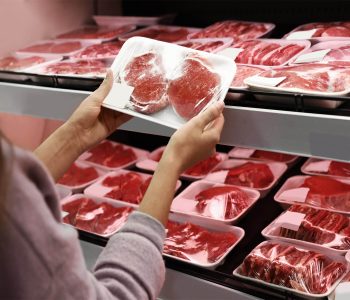Meat consumption and animal welfare can be a good match!
One of the most addressed issues in recent years is the way in which the world’s population has been eating. Under this scenario, a part of the global population has chosen to become vegetarians. This choice is often based upon concerns regarding animal welfare according to those who freely decide to become vegetarians. Just as there are different lifestyles, each person’s individual diet has a certain component of freewill, including the choice to eat meat. However, regardless of certain mainstream beliefs, meat production and animal welfare can actually go hand in hand.
Several topics addressed today have gained a lot of relevance due to globalization and greater connectivity between people through social networks. Driving issues both positively or negatively depending on the matter and those involved. It is worth considering taking advantage of these mainstream discussions to address them from a technical standpoint, based on legitimate and scientific evidence. Aiming to prevent misinformation being spread by those who claim to defend certain causes but have no legitimate information to back them up.
However, there is a big difference when it comes to simply choosing this lifestyle and going against those who think different. As nothing positive comes from the confrontation between vegetarians and carnivores. Historically, there has never been such great focus on tolerance and respect as there is nowadays. Therefore it is important for these topics to be dealt within a context of respect, without trying to tilt matters one way or the other using false pretexts.
Animal Production
In regards to the more technical aspect of meat production, animal welfare and its consideration through all the rearing and production stages has never been so present, as it is now. This is clear evidence that producers do care about public opinion, and even more so about giving animals their due respect.
An example of this, is that in many places around the world and in different types of breeding, animal welfare represents and important checkpoint within production chains. This is a highly predominant trend in livestock production which seems to have gained its place for many years to come. Making it a central matter within the productive sector. Nonetheless, it appears to be that those who do not work within the sector, are still unaware of how the meat chain has evolved in this regard.
Health Related Factors
When it comes to human health and nutrition, several medical studies have shown that various nutrients found in meat are critical for the adequate functioning of the human body. Such is the case of certain minerals and vitamin B12 (which are not produced by the boy nor are they found in vegetables). These nutrients are essential for maintaining vital physiological functions as well as for the growth and development of tissues, including the nervous system.
Several nutritionists claim that children should not be deprived of animal protein. Considering that such nutritional limitations could impair brain development. Emphasizing the fact that supplementation of these vital nutrients with certain industrialized products may not be enough.
Physical anthropologist Walter Neves of the University of São Paulo, Brazil, states that through the course of evolution, human consumption of animal protein has increased too much. “Without this, we wouldn’t have developed a great brain,” he says. In that regard, we should also be questioning our own evolution and development, and not just the choice of eating meat or not.
Food balance
Another point that addresses this issue is whether or not to have a healthy diet. According to the World Health Organization (WHO),an adequate consumption of nutrients, vitamins, proteins and other elements, is essential to maintaining good health levels.
Meat consumption does not represent an increased risk of disease onset in itself. However, excess food consumption as a whole can be a cause of future health problems.
We can consume throughout our lives in a healthy manner. However, balanced diets and adequate food education are necessary to keep animal proteins from being eliminated from our tables. Therefore, it is important to understand that meat in itself is not a culprit to human health. As is the case with salt and sugar which continue to be very popular ingredients within our diets despite the widespread knowledge about the health risks associated with their excess intake. Such as the onset of chronic diseases like: diabetes, heart disease and obesity.
Economic & Cultural Aspects
In addition to the aforementioned reasons, we must not forget that the lack of meat consumption can have serious economic and development implications. Andrew Jarvis, a researcher at the International Center for Tropical Agriculture (CIAT), based in Colombia, stated the following in a BBC’s future report:
“It is a tale of two worlds”, highlighting the fact that “in developed countries, vegetarianism could bring some advantages to public health and the environment. Nonetheless, in developing countries, this could be lead to more poverty.” So we’re talking about increasing social inequality around the world.
Millions of people involved in meat production chains would need assistance for finding new jobs or in some cases, changing their careers.
This would significantly hamper social growth and development for those families affected by such changes. Leading to reduced consumption levels,and a higher rate of global unemployment. Causing disruption in different regions around the world. Those sectors and communities which have historically depended on livestock for their survival, would find themselves in serious trouble to adapt to new ways of ife. It is worth highlighting that the cultural impact would also be enormous.
Changing these people’s lifestyles and their cultures is far more worrisome for humanity than simply wanting to increase meat production around the world.
You may also enjoy reading: “Organic production and sustainability”
